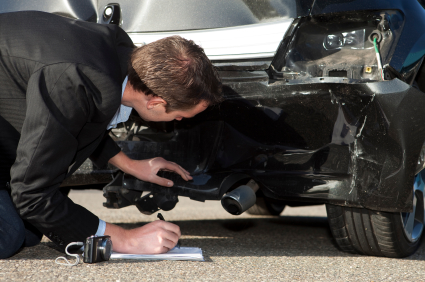After filing a complaint of an auto accident before your insurance company, the complaint goes through a process leading to an agreement. The exact way your insurance company investigates accident claims may vary depending on the following:
- The nature and severity of the accident.
- Your company’s own policies.
- If the accident involved property damage, injuries, or both.
However, certain steps are common in most investigations. We will review these steps here.
Immediately After the Complaint is Filed
After filing your complaint, an insurance adjuster will be assigned to your case. The adjuster will review your policy to ensure coverage you have. He or she can contact you for more details about the accident.
During the investigation, the adjuster can:
- Request to send a copy of the police report for review.
- Communicate with the other involved driver.
- Talk to witnesses who were in the accident.
- Visit the scene of the accident.
- Inspect your vehicle for damages.
- Taking pictures of your car.
- You will be asked to sign a medical authorization form in order to see your records.
- Contact your health care provider for information about your injury expenses.
Medical Care And Vehicle Repair
Your insurance company will cover your expenses for injuries and repairs of your car until the resolution is determined and then negotiate with the insurance company of the other driver to decide who pays in the end.
The initial payment process is “compensation”, which means coverage for damages and losses.
If the other driver is found guilty, your insurance company to seek payment from the insurance company through the process of “subrogation (replacement)”.
Repairs
In general, you have several choices when it comes to obtaining the best repair for your vehicle:
- The use of a verified body workshop. Your adjuster may request to take your car to a workshop approved by the insurance company for an estimate of costs and repairs.
- To obtain quotations. The adjuster can ask you to go to several workshops of your choice and get quotes to compare.
- Choosing your own repair shop. You may decide to perform repairs on your car anywhere you choose; however, you may have to pay the difference between the budget presented by this workshop and the amount which the insurer determines is a fair price.
Medical Bills
If your claim includes medical expenses for injuries caused by the accident, your claims adjuster will need to see evidence of your medical expenses.
He or she may ask you to sign a permit so that your car insurance company access to your medical history. Before signing this document, you may want to talk to an expert accident lawyer about whether the signature is your best choice. Once they have access to your records, the information in your medical history can be used to reduce the payment of your claim.
Review your Version of Events
You will need to provide as much information as possible to get the best possible deal. The adjuster will ask for all the facts to remember.
In addition, you may need to send the following information to your insurance company:
- Policy number (can be found on your insurance card).
- Date of the accident.
- Crash site.
- Description of how the accident occurred.
- Information and the name of the insurer of the other involved party.
- The name of the involved Police Department and the number of the police report (if applicable).
Related: How To Get The Best Settlement From Your Personal Injury Case
Official Records Review
During the research phase, the adjuster reviews the case. Your representative can review the following information:
- Amount of property damage.
- Police reports.
- DMV accident report.
Fault Determination
One of the functions of your insurance adjuster is to determine the fault. In most states, a driver must not be 0% or 100% of the blame.
Your adjuster can decide that you are part of the blame (for example, 70% responsible for the accident). If you are responsible for 70% and the other driver is responsible for 30%, the company can pay 70% of the compensation, and the auto insurance company of the other driver can pay the remaining 30%.
In some cases, the solution is to be fully paid by the insurance company car driver that has most of the blame. Talk with your auto insurance agent to learn more.
Complaint Review
In reviewing the claims, the claims adjuster can look at tests such as:
- Medical records.
- Evidence of property damage.
- Proof of lost wages.
The role of the Media
The adjuster will investigate in addition to reviewing the history of complaints; insurance companies may also seek information from you on the Internet.
They can go to Facebook, Twitter, or other social media sites to make sure you’re not lying. For example, if you are claiming damages for car accident Tuesday morning, and published a photo of you with your car intact on Wednesday, the company will recognize the fraud.
Your insurance company has a Special Investigations Unit (SIU) to investigate suspected fraud. You can protect yourself on social networks through:
- Adjusting privacy settings so that only approved people can see your photos.
- Avoid posting photos or anything online about your accident.
- Do not attempt to make a fraudulent claim.
